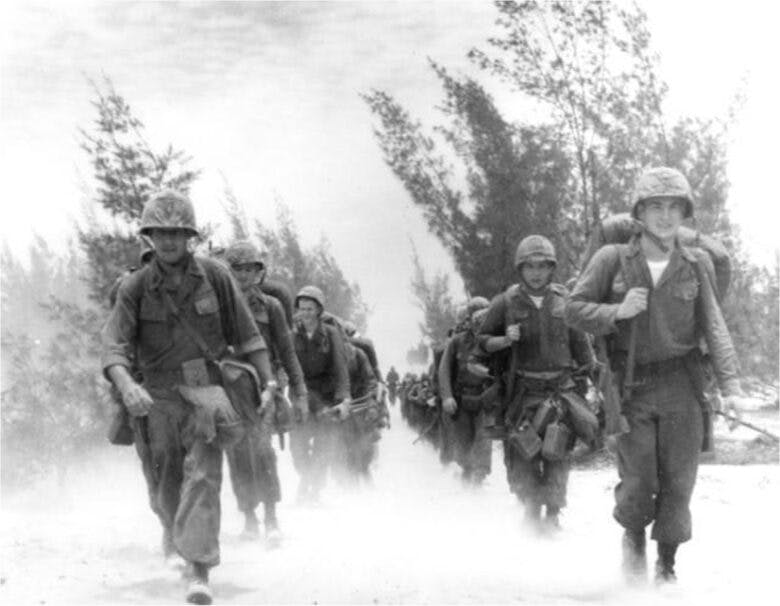Date: January 27th, 2024
For the first time, we delve into an event that unfolded within the last 50 years. It is a war fought over communism and a war which remains controversial despite the time that has past.
On this day 50 years ago, the Vietnam War ended.
The Vietnam War, fought from 1954 to 1975, was a conflict primarily between the communist government of North Vietnam, supported by its communist allies, and the government of South Vietnam, supported by the United States and other anti- communist nations. The root cause of the war lay in the division of Vietnam after the Geneva Accords in 1954, which split the country into communist-controlled North Vietnam and non-communist South Vietnam. The communist North aimed to reunify the country under its rule, while the South sought to maintain its independence and resist communism. It emerged as a pivotal battleground during the Cold War era, pitting communist forces against the anti-communist forces. The United States became deeply involved in the conflict due to its policy of containment against the spread of communism. They feared the domino effect, whereby the fall of one Southeast Asian nation to communism might trigger the collapse of others.
communist nations. The root cause of the war lay in the division of Vietnam after the Geneva Accords in 1954, which split the country into communist-controlled North Vietnam and non-communist South Vietnam. The communist North aimed to reunify the country under its rule, while the South sought to maintain its independence and resist communism. It emerged as a pivotal battleground during the Cold War era, pitting communist forces against the anti-communist forces. The United States became deeply involved in the conflict due to its policy of containment against the spread of communism. They feared the domino effect, whereby the fall of one Southeast Asian nation to communism might trigger the collapse of others.
The major battles of the Vietnam War were characterized by guerrilla warfare, ambushes, and counterinsurgency tactics. The Battle of Dien Bien Phu in 1954 marked the end of French colonial rule in Vietnam and laid the groundwork for the division of the country into North and South Vietnam. The conflict escalated with the Gulf of Tonkin incident in 1964, which led to the escalation of U.S. involvement in the region. Key engagements like the Tet Offensive in 1968, though militarily inconclusive, eroded American public support for the war effort due to the scale and intensity of the attacks launched by North Vietnamese forces throughout South Vietnam. The Battle of Khe Sanh, fought around the same time, underscored the challenges faced by U.S. troops in combating a determined enemy across difficult terrain.
in the region. Key engagements like the Tet Offensive in 1968, though militarily inconclusive, eroded American public support for the war effort due to the scale and intensity of the attacks launched by North Vietnamese forces throughout South Vietnam. The Battle of Khe Sanh, fought around the same time, underscored the challenges faced by U.S. troops in combating a determined enemy across difficult terrain.
The beginning of the end of the war was marked by the signing of the Paris Peace Accords in 1973 which signaled the withdrawal of American troops and a ceasefire agreement. However, without the presence of U.S. forces, the South Vietnamese government struggled to fend off the advancing communist forces. The Vietnam War ultimately ended with the fall of Saigon, the capital of South Vietnam, to North Vietnamese forces on April 30, 1975, resulting in the reunification of the country under communist rule.
Ultimately, the Vietnam War was a multifaceted struggle driven by ideological, geopolitical, and historical forces. It represented a critical chapter in the broader Cold War confrontation between the United States and the Soviet Union, and its repercussions continue to reverberate in both Vietnam and the international community to this day. In speaking of the United States, the conflict deeply divided American society, fueling anti-war protests and sparking a reassessment of U.S. foreign policy in the wake of its perceived failure in Vietnam.
Source: Spector, Ronald H.. “Vietnam War”. Encyclopedia Britannica, 24 Jan. 2024, https://www.britannica.com/event/Vietnam-War.

Leave a Reply